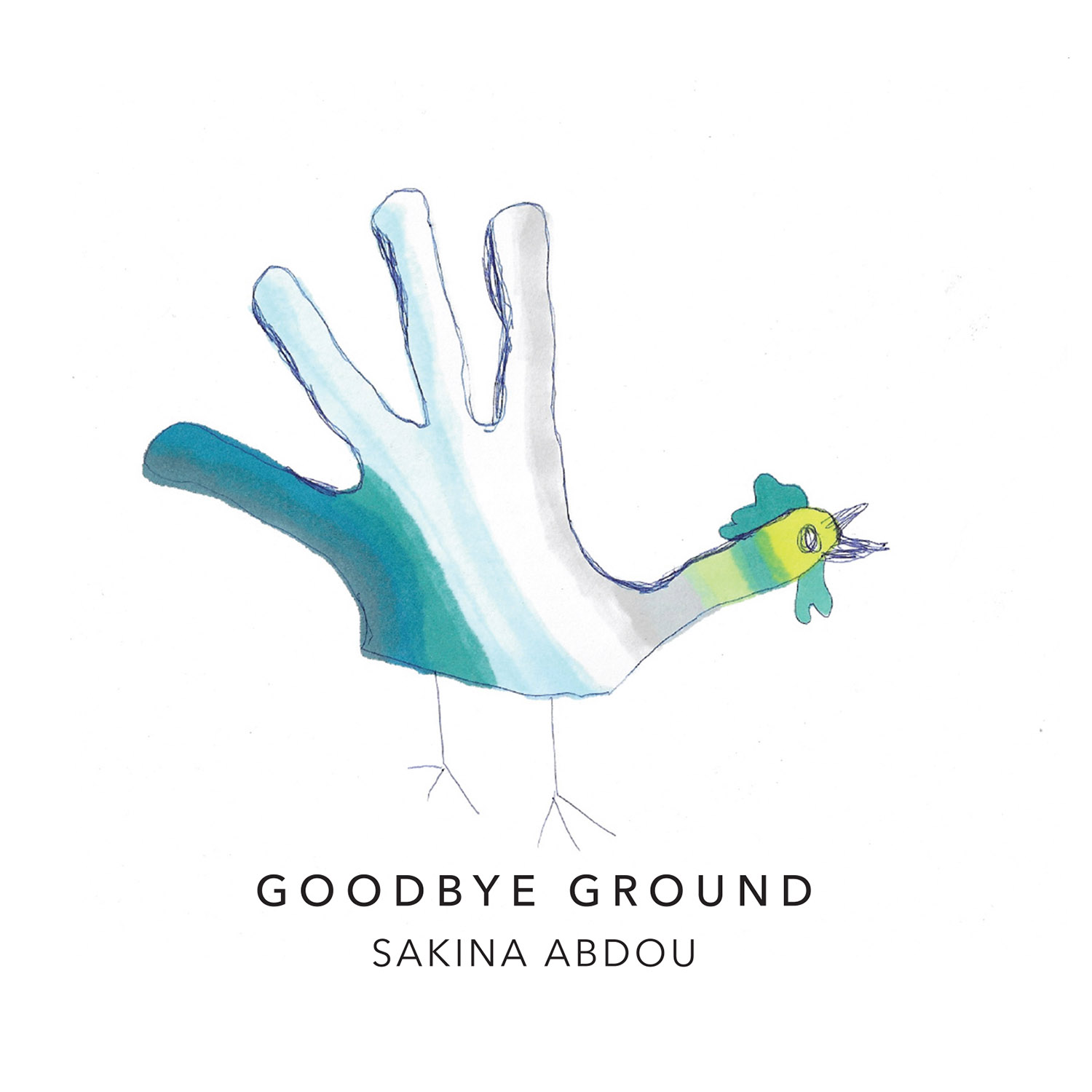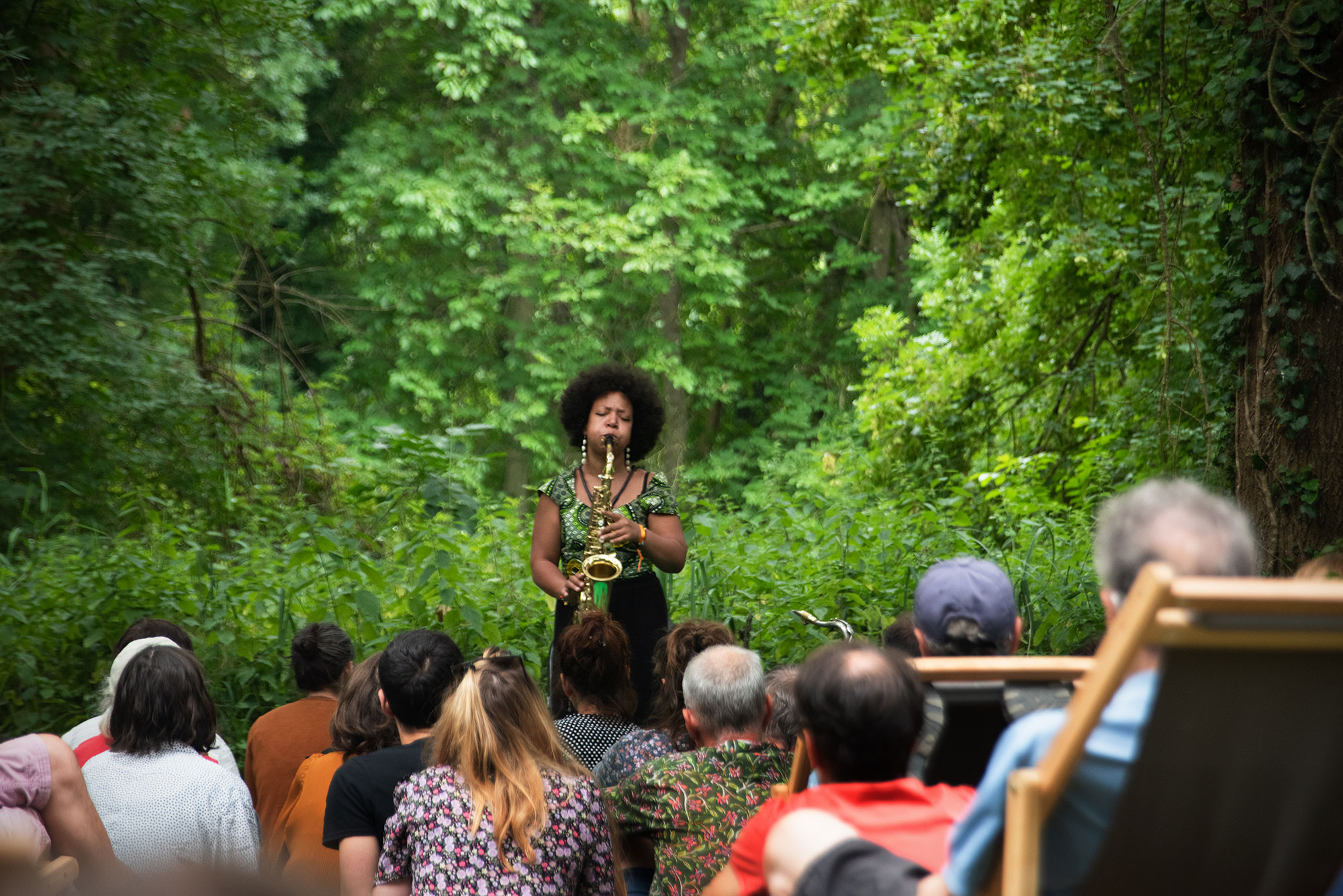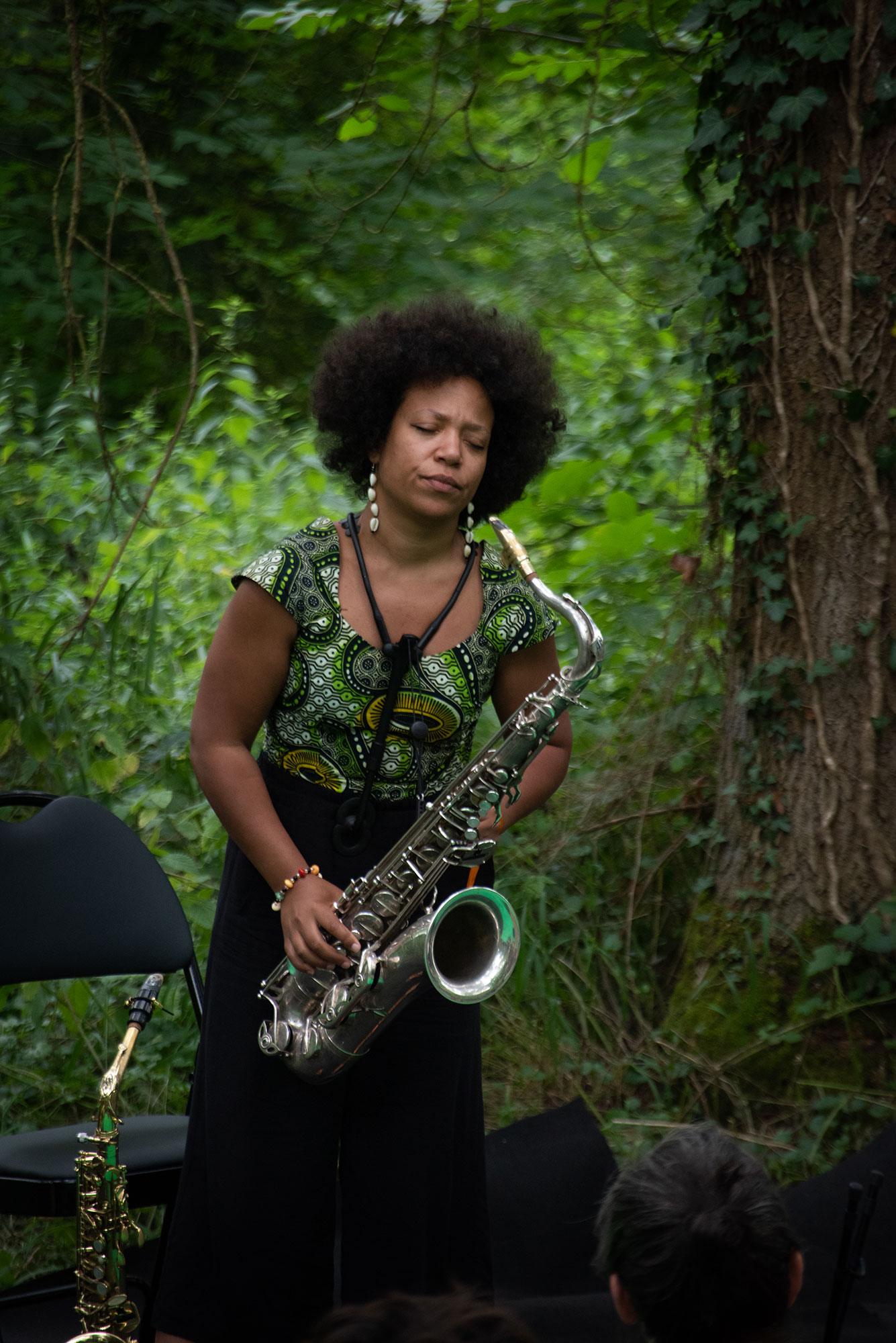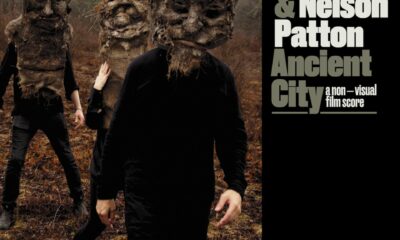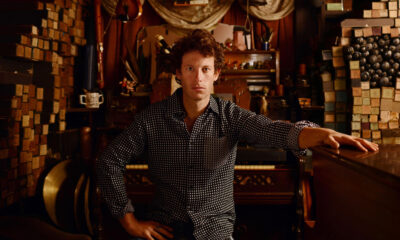Interviews
Sakina Abdou Discusses Her New Record ‘Goodbye Ground,’ the Joys of Music, Travelling, and Loads More
Experimental jazz artist Sakina Abdou discusses her new record ‘Goodbye Ground,’ what she loves about music, politics, and oodles more.
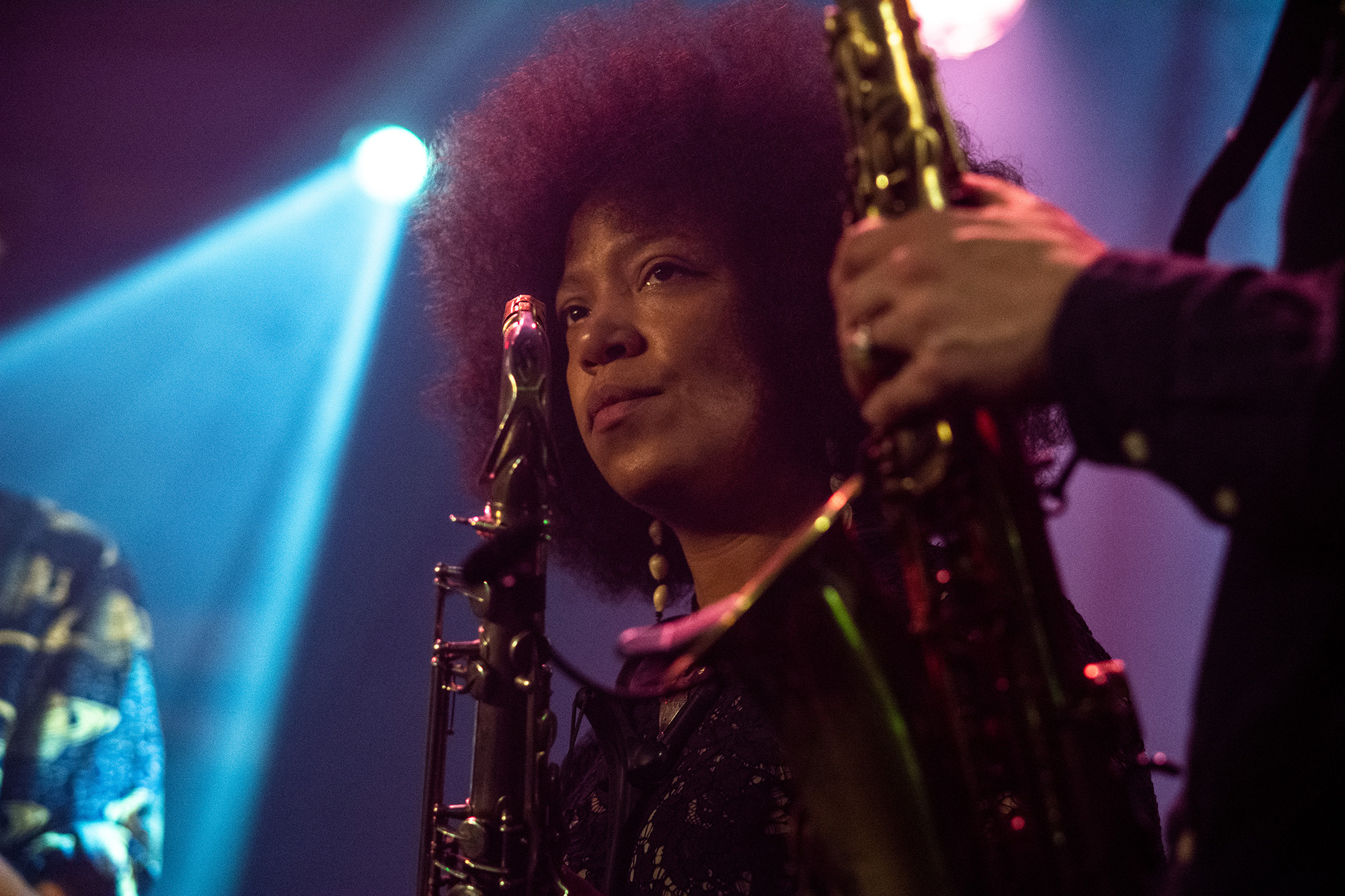
As an artist, there are so many aspects and layers to Sakina Abdou that you really have to hear it to get some understanding of it. Primarily a saxophonist and a flautist, Abdou records music like no one else does. You can hear it on her new solo album Goodbye Ground. Completely stripped down, raw, naked, and true to her roots, Abdou creates quite the atmosphere with this record. It has no studio tricks or effects; it’s just her recording at home, immersing herself in her imagination. Imagine a musician improvising, following their intuition, recording in their kitchen; that’s what you hear on Goodbye Ground.
In actuality, that is essentially how this record was made. Approaching these recordings with a handmade approach, Abdou arranged them into different “passings.” She designated one of the rooms in her house solely for recording. If you really engage with these passings, you can feel the solitude of the musician in the room. You may also feel the presence of a few spiritual guests. It’s a very moving recording project that can’t be experienced haphazardly. It requires your undivided attention, which really ameliorates the listening experience.
Today, we are joined by Abdou for a very lengthy conversation about music and life. We discuss Goodbye Ground, the joys of playing music, her views on joining together politics and music, and much, much more.
Tell us about Goodbye Ground. What was your experience during its realization? What happened behind the scenes? Any outstanding moments?
“For my last album, which is a solo, I had for the first time in my life the hand on the whole conception, organization, and realization of the process. For me, it was very exciting to be able to do things ‘my way’ and to allow myself to have the craziest ideas without being held back by the potential extravagance of my whims. My little folly was to want to record alone at home. I preferred to invest in my own walls than to repeat the experience of the studio that I already knew a little. I was seduced by the idea of building something in the long run and in total independence.
“I was also attracted by the experience of almost ‘retirement’ which consisted in recording without witnesses, totally alone. My sound engineer thought with me about a recording device with different types of microphones, capturing from the inside of the instrument to the wide area of the room, scattered in the space from near to far. Markings were placed on the floor around a chair that was assigned to me. It did not move during the entire recording process. This process took approximately two months.
“My engineer friend set up the microphones, made some presets, and then let me manage the computer and the sound card in order to start the takes myself. We made a kind of premix that allowed me to play and listen to myself afterwards. That was it!
“On many levels, I found it hard as well as interesting.
“Hard because the studio is a bit like going to the shrink, it must cost you to do the job! You pay, and it sets up a time frame dedicated to the formulation of something. In other words, you book, you finish, you go for two or three days and no matter what happens when you get out, you’ll have the material for your record. Because you have to, because this framework will make you give birth to your music no matter what, and it will be formulated within these constraints. You will have to make a record with what came out of it.
“That’s a little different here. It’s the illusion of infinite time, the absolute fantasy of no constraints. You come down to your pocket studio whenever you want, like in a parallel life (you can even record in kangaroo pajamas if you want). I had reserved large areas in the schedule but still continued to pursue my life as an artist with gigs and work residencies outside. It seems ‘ideal” at first sight, this creation ‘free’ of any hindrance. And yet it is not so simple!
“Alone, you have to recreate the charge and the urgency to create. Without a captive audience, one has to find other reasons to hold the discourse, to accept it, and to do with it whatever it takes for the music to finish the object of its discourse. It is precisely this boundary between exercise and play that I found difficult to tame. Alone, one has the leisure to appreciate differently what comes out, to be not convinced, to stop, to start again. The trap is to start ‘working’ and to write a form that settles. I didn’t want to write, I wanted to improvise. And the work of improvisation is precisely to work on playing the ‘now’ and not to work on building a ‘now’ for an ‘after’ (which would be more of an interpretation).
“Not easy, but in the end I am very happy with it. I lived it as an experience, a rite almost. It’s something that strengthened me in the fact of expressing something in music, to assume it and to hold it. To not go through the address to the public and to speak directly from me to me in all sincerity.
“Twice, I organized a small apartment concert to put myself in the situation of playing in front of people. The first time in front of a small audience, the second time in front of just one person, my companion Jérémie Ternoy. He is a pianist in his own rights and he accompanied me and acted as an outside ear during the whole process. It is a completely different state of play and relationship to time. One feels the charge of presence maximized, the expectation, and the impatience of each one. Even silence doesn’t sound the same.
“In the end, I built my record by collecting these different moments and reconstructing them in the form of an arch and an imaginary narrative. I am sometimes alone, sometimes accompanied… you find out when!”
What is the best review you have received about your music or performances?
“When Relative Pitch Records commissioned me to do my solo, I immediately checked out their catalogue and found it to be really fantastic. When you find something great you don’t necessarily feel the desire, the need, or even the ability to do ‘better.’ It didn’t make sense for me to try to climb another step of the pyramid at that level. I preferred to place my ambition somewhere else. I told myself that I didn’t necessarily want to ‘invent’ new sounds, a new language, a new genre. But instead I would rather use the vocabulary that I had collected, until now in a rather compartmentalized way, to formulate it more widely and in ‘my’ way. Something personal rather than innovative.
“My wish was not to try to invent new words but to find my own accent. I told myself that if I could make my accent heard, I could make my language heard. And to make one’s language heard is something new because what one has to say, no one else can say it. It is this novelty that I have sought in all humility.
“During the recording session that I opened to the public, a long-time friend, someone who accompanied me in my discovery of free jazz and improvisation, a father in a way, gave me a great feedback. He told me that he hadn’t heard anything he didn’t already know, but that he had discovered my personal expression he never expected that evening and that he had been captivated and very touched by it. Jérémie often tells me that when someone speaks to say something true and personal, it is enough to be convincing and unquestionable. Well that was exactly what I was looking for so it really touched me!”
What do you like most about playing music?
“One day I had a fire in my house and I had to find lodgings for almost two years. My traumatized daughter didn’t know the difference between sleeping over at a friend’s house, going on vacation, or renting a temporary apartment to stay in. She kept packing bags before leaving a room, not knowing if we would come back and carrying a sort of portable home substitute in her suitcase.
“Not knowing where to anchor myself, I consoled myself with music. ‘Now is all I have. Now is all I need. Now is all I want. Now,’ Moondog sang on his sidewalk. Like a gift, I realized late in life that the present, regardless of gender, class or nationality, belonged to everyone and that music, at least, I could never lose. That it accompanied me everywhere all the time and that I had the leisure to embody the present and to settle there at my ease when and how I wanted.
“This space, so comfortable, appeared to me at that precise moment as my only and true dwelling, spiritual, and tangible. It is the magic of being everywhere at home and having the great honour of being able to invite everyone. It’s being able to be yourself without any compromise while accepting others infinitely. Music is an art of time and improvised music especially an art of the present, an art of life. This is what makes this practice so spiritual and precious to me. Its daily practice should be recommended by any good practitioner and fully reimbursed by the social security fund.”
What is the next step for you?
“I want to continue touring my solo. The experience of doing ten concerts in a row is something I really loved, it really propels you into a momentum, a particular energy, with the feeling of shifting gears until hyperventilation! It makes you tap into new resources to finally play in a way you’re not used to playing.
“My next step after that (everyone has been nagging me about it for ten years, but I didn’t want to force myself and waited until I really felt the desire and the need) I think it will be to start a band. I might want to start the adventure at that level. Being the leader of a project is not and has never been an obligation for me, but now I’m starting to feel like trying.”
What is the story behind the name of the new album?
“Goodbye Ground is like a rite of passage. At first, I recomposed a musical arch from selected recording sequences and thought of it in three parts; ‘Dilatation. Destruction. Atomization.’ Well, I didn’t think that made for very nice titles! So I looked for meaning, I started telling myself a story. The idea of the ground spoke to me a lot. The ground is full of meaning. It can be a lot of things. It is the place where we come from, the place where we go.
“‘Becoming a floor’ (the title of the first piece) is the fact of being reconciled with the place where we are. The ground is what binds because we all share the same ground. The grounds communicate. There is the idea of distance and unification at the same time. In the context of the first piece, the floor also represents a ‘time material,’ like a block. A transformation of the instant in the duration. It also speaks to me of the state of improvisation, of letting go in a ‘I do that gradually erases a ‘I want’’ and his own ego.
“The ground is also the foundation, for me. It represents naivety, the state of zero consciousness. It is a support, the first reference point on which we build our presence, and our relationship to the world, but of which we are not completely aware. It’s like all those things that we can’t imagine that they could end one day or slip away and yet at some point they crack. And when it happens, you have to learn to detach yourself from them.
“That causes a certain form of tearing off. We are in the air, we are nowhere, in an in-between. A forever ‘not like before’ and a difficulty to know where to put the ‘after.’ We have lost the ‘first’ ground, the one of which we are not aware and which has no end. Nevertheless, we cannot replicate a second one. We have to move but we don’t know where to put our feet. How to find a seat? The chair is a compromise.
“And it is also from this process of distancing oneself from the ground that one is able to plant things. Planting chairs on which others can also sit. A portable anchor!
“In the record, the second piece which is central, represents this tilt. It makes prism in the language. It pulverizes then transforms. It is the moment which allows the blossoming of new lands. After that we follow the road of a constellation of small monads which form a new whole and open on a future of possibilities.”
Is there anywhere you’d like to go that you haven’t yet?
“This question depresses me completely… The life I lead in Europe has its advantages for sure, but its society model does not correspond, at the base, entirely to my values. The way in which money, family, old people, work, time, production are considered… I accept it. I integrate myself into it and try to live it as well as possible, but I have always wanted to reassure myself by the existence of something else, of an alternative.
“I have been wanting to go back to Africa for decades. These are very busy trips for me. My father left at a young age and never came back, although he always hoped to return one day. I think I inherited this feeling of distance and frustration. I went there a few times briefly. Now the situation is complicated. At the same time, not being able to go anywhere with ‘golden’ European passports when where I live, foreigners are massively refused entry doesn’t seem so incoherent… I would obviously have preferred the opposite equality. Today I am afraid I will never be able to go back. It’s as if the fantasy, the dream, the elsewhere were dying. A real inner disaster in short.
“I aspire to discover something else in my lifetime, other places where we can live differently if there are any left. Or at least find a way to reinvent my anchor and my sense of belonging here.”
What is the music scene like where you are based?
“Where I’m based, I was lucky enough to grow up in an associative environment of creative music collectives. First of all with a collective Zoone Libre more oriented towards jazz and contemporary music. Then with the collective Muzzix in a more free improvisation and experimental music vein.
“The two entities have been organizing things in the concert hall La Malterie in Lille for about 20 years. This venue is one of the rare places where you can listen to this kind of music. There is also the CCL (Libertarian Cultural Center) which proposes an open and radical programming. And in the field of jazz there are dedicated programs in several venues: among others at the jazz festival of Tourcoing, Jazz à Véda, etc. There are also a lot of café concerts and concerts in apartments.
“The current music scene is rather well served in a number of large more mainstream venues ranging from small to huge. There is also the network of the Scènes Nationales and Conventionnées… A lot of places to play music. But very few where the programming is left to the musicians. I only see the Malterie which leaves the programming in the hands of the artistic actors themselves, but unfortunately this venue is more than threatened.
“However, even if it is a ‘niche’ music, it has an international influence. I could see there a lot of avant-garde figures such as Ingrid Laubrock, Tom Rainey, Satoko Fujii, Joe McPhee, Tim Berne, and so many others! For all these famous people, Lille is not a huge mainstream venue, it is the Malterie. And you can discover them and meet them for a very affordable price!
“It doesn’t guarantee that the audience will be full, but it does guarantee that the opening to this music, available in very few places, is possible and accessible there. And this reach, this window, this international link to creative music all over the world makes more sense to me than maximizing a big audience at all costs. It illustrates the subtle difference between the democratization of art and the democratization of access to art.
“For me, this difference consists in valuing equal access to culture for everyone. Access does not mean consumption. And the criterion of possibility counts more than that of attendance. Under the cover of democratization, profitability can be sometimes hidden.
“Some educational classes by example with low attendance could be closed by impulse of ‘democratization of art’ as we close train lines for the reason that they are not enough used by the ‘users.’
“This implies that the minority of people who attend them are worth less than the majority of those who do not and that for this reason they are not guaranteed the same access to cultural teachings. I learned music as a child in a local music school in a working-class area. I was lent an instrument and given quality instruction in an early music class in which we were ‘few.’
“I may be the only student in that small recorder class on this small music school who became a professional. But my professionalization is a proof that the path was not closed to me and that it is open to anyone who wants to take it. Possible does not mean obligatory. For me, the important thing is not that there should be a maximum of musicians, students, or audience in the concerts. But that they, even if few in number, can be everyone without hindrance.”
Do you receive a lot of support from your local scene and from fans in general?
“Since I was 14 years old, I was able to participate in my first creations with original music. At the time it was about revolutionary readings of Prévert set to music. My mother was in charge of the lighting and the completely crazy costumes. I was surrounded by friends and family. The first shows were paid in couscous. And the couscous was eaten the same evening. All in all, very good memories! Is the emotional and social support that surrounds music a support? For me it is! It is frankly part of the arguments that made me choose the professional environment of music which mixes art and life often at the same time, for better or for worse.
“Later on with the Muzzix Collective, I also felt chaperoned, guided, initiated, supported. The collective allowed me to participate in many great projects in professional settings. With the band La Pieuvre we took the truck to go to Jazz à Luz, Météo, Sonic Protest, Musique Action, etc… I discovered the improvised and experimental music scene in this way. It’s more than a support, it’s a chance! And then when the time came to set up projects, I was immediately accompanied by the collective but also by Peter Orins’ excellent label Circum-Disc.
“I was lucky to have the absolute support of my companion Jérémie Ternoy with whom I have had an artistic and human complicity for a very long time. His encouragement helped me a lot to find my place as a woman in the still very masculine and let’s say ‘dissuading’ environment of jazz and improvised music in France.
“And it may sound cliché to say this, but I was also lucky enough to meet great teachers in my early music, jazz, and classical music conservatory courses who also supported, guided and encouraged me a lot. I don’t forget them either.”
When you were recording these last batch of songs, did something strange, wonderful or terrible happen?
“Something terrible and wonderful, both! The first few times I was alone with myself to record, I wanted to try to let go of all inhibitions, all self-censorship, all representation… to seek the most primal form of authentic expression without a filter, to play ‘uncovered’ and bare myself no matter what came out. I was even ready to accept something corny! I improvised a long stretch of music. Emotion and tears came up and out during the take. With that, I was satisfied and completely convinced that I had put something strong and real in the box! I listened again and discovered with dismay that it was horribly lame… Ahah, life can be tragic and funny at the same time!
“The last improvisation track I recorded. I gave myself as a constraint and imperative, not to stop or abandon the thread of the music by discontent. Not easy! As soon as I start, I find that my idea is bad, poorly done… the desire to start again is immediately apparent. I stay focused on my mantra, I hang on, I don’t let go… I tell myself, ‘I don’t care if it goes in the trash, I’m going to finish it.’
“I really had the feeling that it was completely boring. Finally, I listen again to the take a few days later and I’m surprised to find it not so bad… The more I listen again, the more I discover aspects that appeal to me. Finally, it became the first track of the record and I like it a lot!”
Politics and music. Yes, no or why not?
“Yes, I think that music has its share of politics. Or rather, I think that a political, cultural, and social situation pre-exists any art and lets emerge and develop musical forms which are never ‘neutral’ even if we are not aware of them. That it makes projects germinate that have a meaning and a political impact, even (and especially) if we don’t pay attention to them.
“There are many ways to think about music and politics. In order to deal with a subject that is still quite controversial in France at the moment, I will choose here to focus on only one of the multiple angles of perspective of this question: positive and negative discrimination.
“Why aren’t women, blacks, or the working classes represented in the jazz and improvised music scene in France? The answer that would consist in thinking that it’s because there are none or that they don’t have enough skills doesn’t seem to me to be an acceptable answer! It is not a question of competence, it is a question of social determinism and it seems to me that the cultural milieu does not escape it by the magic of art.
“The ‘competence,’ whether it is artistic, academic, whatever, is not a question of gender or skin colour. So when a problem of representativeness appears at the level of this discrimination, it is because it prevails before the talent and I find it interesting to think individually about its ‘active’ place and its margin of action in a collective mechanism rather than to be satisfied passively with this ‘fatality’ and to transfer the load of the change to the discriminated people themselves who would only have to make themselves ‘known,’ ‘shine,’ and ‘excel’ in an unequal system so that only afterwards they would be thought of and solicited.
“Even so, would it really be a solution to the problem to have to brave social dysfunctions alone and work harder than others to be able to claim the same representation in the world of work? We must not forget that even if we aim at the same point, we do not all start from the same place.
“In my profession as a musician, I no longer believe in the artistic requirement as an argument for a ‘natural’ or ‘spontaneous’ choice when casting a project. This artistic ‘true’ seems to me as an illusion. It is however an argument that I still often hear against a positive discrimination that would ‘sell out’ the art by the brake of extra-musical criteria. Politicians are flogged for ‘placing themselves’ among friends in professional spheres on a high scale, but musicians themselves are the first to do so with a feeling of impunity, convinced that if you set up a project with your friends, it is because the ambition of the art requires it.
“There are however many sieves which alter the exercise of these supposedly ‘natural’ and ‘spontaneous’ choices: the too homogeneous and discriminating environment in which we find ourselves which disfigures our imagination and our perception among other things. Moreover, we often only think about what we already know and we don’t always make the effort to look a little further. The criteria of appreciation forged by these same circles are accepted as commonplace, but it would be legitimate to put them into perspective as well.
“It is not for talent or artistic reasons that homogeneous musical groups of people of the same colour, age, or social class are formed. These soils of intermingling forge a certain definition of art and its appreciation and these seem to me to have more to do with the social and political framework than with an ‘absolute’ art. In some contexts excellence will be dexterity, in others having a lot of followers on Instagram, in others still a form of scholarly elitism, etc… An appreciation of the artistic often alienated by the sieve of these criteria of recognition and social-cultural legitimization therefore.
“In short, the fact of seeking in the very short term a so-called musical ‘excellence’ in unfair and discriminating contexts which do not offer the same access to everyone, the same visibility, this with criteria of appreciation forged by these same unequal frameworks seems to me to be a non-virtuous circle and pushes me to ask myself the question why? For whom? By whom?
“To accept to perpetuate these prisms, to break them, to open them, in any case to reflect and to position oneself, seems to me to be a political act in music that everyone can carry out in conscience or not. I admire a lot Eve Risser who frankly has the merit to dare to do the work of this questioning. The fact of taking care to think the human and social ground of a project to make it grow beautiful music seems to me to be an artistic ambition and not a levelling down.
“So I still question myself a lot and try to understand the frameworks of my practice, those they exclude, what I support by accepting them, my margin of maneuver…
“For a long time I taught in the public service. I have the feeling that part of my work was paid in human, social, and cultural mix that I consider as a wealth. I met people of all ages and backgrounds. Even before that, during my childhood, I rubbed shoulders with many people through my activities in both underprivileged and privileged areas. For a few years now I have retired from teaching and I feel that I am less nourished at this level because in the world of culture, the environments are still very compartmentalized.
“So I would say that I aspire not to cut the link with everyone to lock myself in a homogeneous and comfortable microcosm. The conjecture seems so harrowing with fatality that it seems to me that this is a place where the music players still have a very small but magic margin of action. A small war chest of revolution through culture.
“Two recent experiences have nourished me on this level lately: Organik Orkeztra’s project Rhapsôidia, which is committed to and clearly asks these questions by going to meet a whole territory in its multiplicity and in the duration and by questioning the relationship of artists to the public. And also a Lemon Jam in Paris in which I was invited by Alexandre Pierrepont and where I saw young people from a Belleville MJC roll up their sleeves to create a moment of open and inclusive exchange that they could not find anywhere else in the cultural panorama. In other words, do the work for us.”
How did you meet the label for this album and what attracted you to sign it?
“Kevin Reilly from the label Relative Pitch Records discovered me on a livestream during a pandemic confinement. He then got in touch with me through Jean-Luc Guionnet and sent me an email that said, ‘Hi Sakina! I love your playing, would you like to release a solo on my label? I’m a fan!’
“Me, first of all I tell myself that it’s a spam and that the metaverse’s algorithm has taken another step forward in targeting. Then I click on the link of the label and see that it is a real label with an incredible editorial line.
“Then we spent a lot of time talking on the phone about music and many other things, in my more than approximate English. It was quite funny and I felt well connected to his state of mind, I found his way of considering the scope and the mission of a label strong of meaning, ambition, and requirement, courageous, militant, and committed.
“Then one day, I asked him about the framework of our collaboration and he ended up telling me, ‘You are free. You do what you want. The music you want. The sax you want. I’m not here to tell you what to do, I’m just here to release your record and defend it. I’m not looking to make money on this, just to defend free music.’ So now I’m just thinking, ‘This guy is crazy and awesome, I love him!’
“I was more than charmed, I was genuinely touched and boosted to the core, branded for life.”
What are some of the lesser-known fun facts about you that people might be surprised to hear?
“I’ve discovered some unhelpful and atypical hidden talents. Unfortunately, I haven’t found a place to showcase them yet.
- I am incredibly good at thumb wrestling (I don’t know why, but I never lose).
- I can eat peanuts by throwing them high.
- I can swallow a flan (even several).
- I also do pretty well at Ich Kiki and karaoke.
- I have also won the death burger seven times in Alain Chabat’s board game Burger Quizz.”
-

 Music1 week ago
Music1 week agoTake That (w/ Olly Murs) Kick Off Four-Night Leeds Stint with Hit-Laden Spectacular [Photos]
-

 Alternative/Rock2 days ago
Alternative/Rock2 days agoThe V13 Fix #011 w/ Microwave, Full Of Hell, Cold Years and more
-

 Alternative/Rock1 week ago
Alternative/Rock1 week agoThe V13 Fix #010 w/ High on Fire, NOFX, My Dying Bride and more
-

 Features1 week ago
Features1 week agoTour Diary: Gen & The Degenerates Party Their Way Across America
-

 Culture2 weeks ago
Culture2 weeks agoDan Carter & George Miller Chat Foodinati Live, Heavy Metal Charities and Pre-Gig Meals
-

 Music1 week ago
Music1 week agoReclusive Producer Stumbleine Premieres Beat-Driven New Single “Cinderhaze”
-

 Indie2 days ago
Indie2 days agoDeadset Premiere Music Video for Addiction-Inspired “Heavy Eyes” Single
-

 Alternative/Rock2 weeks ago
Alternative/Rock2 weeks agoThree Lefts and a Right Premiere Their Guitar-Driven Single “Lovulator”

